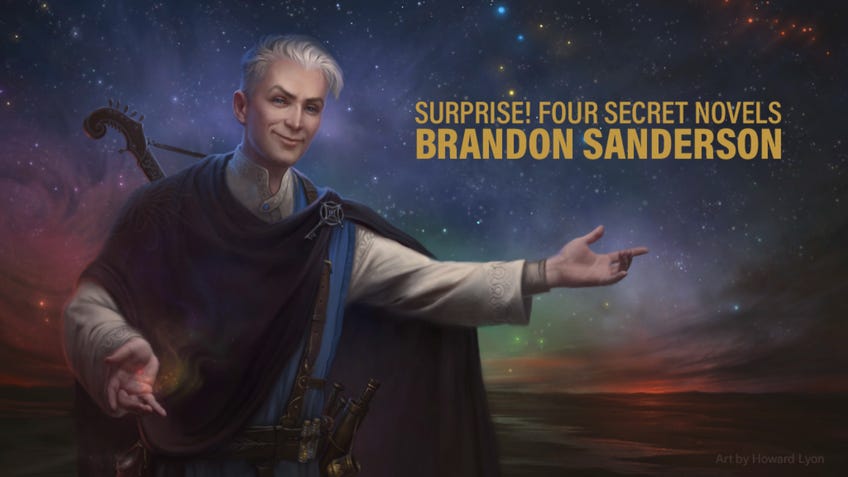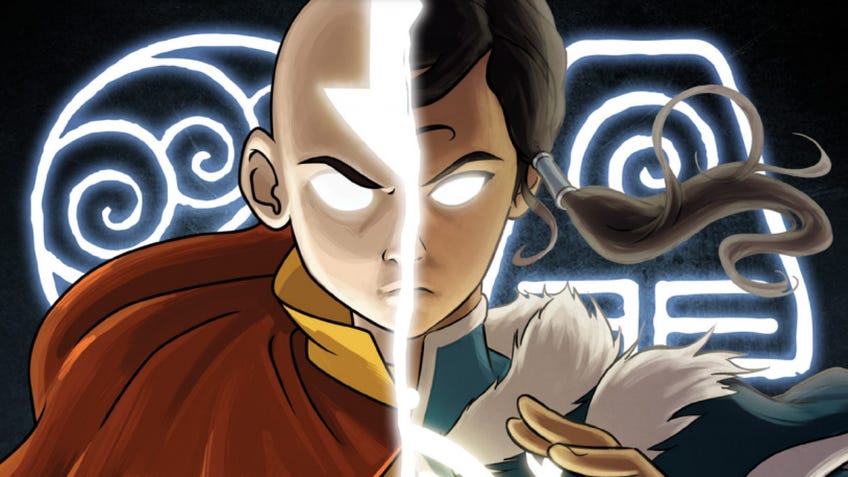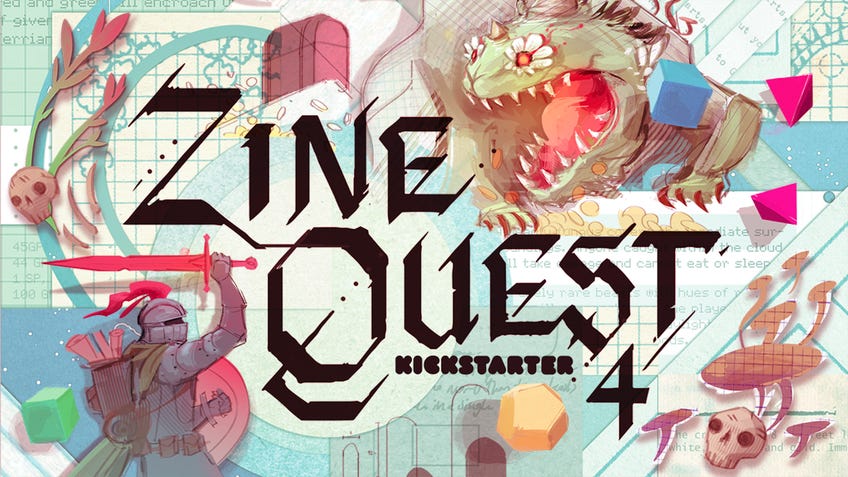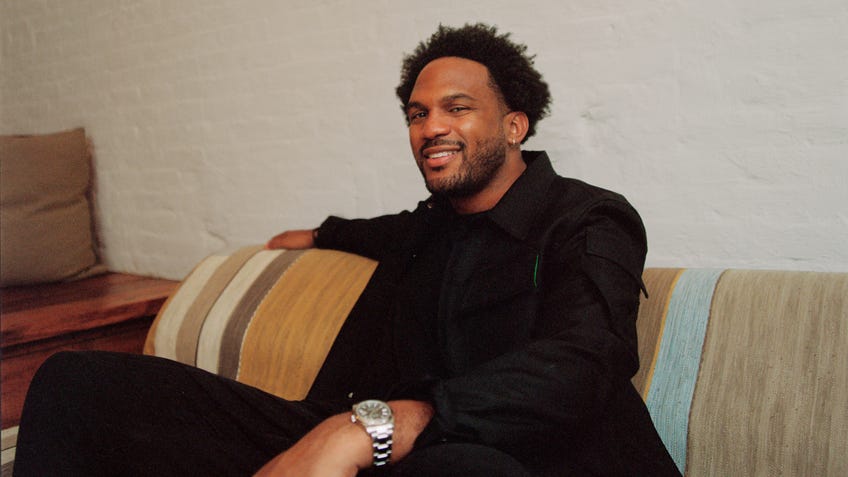Kickstarter's new CEO talks future of tabletop crowdfunding, Gamefound rivalry and blockchain plans
"We have a lot to improve on that will keep our hands full."
Earlier this week, Kickstarter announced the hiring of Everette Taylor as the crowdfunding company’s newest CEO.
Taylor takes the helm during an unsure period for Kickstarter - the shadow of a poorly-received announcement in late 2021 that the company would pursue blockchain implementation research still looms over its every action. It has since introduced an advisory council composed of backers and creators meant to keep the company accountable.
In the past year, both Gamefound and Backerkit have pushed their chair up to the crowdfunding table in order to claim larger pieces of a financial pie that continues to grow year over year. Despite all this, Kickstarter campaigns have not slowed down, even within a tabletop industry that reacted strongly to the blockchain plans.
Dicebreaker had a chance to interview Taylor during the first days of his tenure to ask what he will focus on, how his own past with Web3 and crypto technology fits into his vision, and how Kickstarter will handle the biggest issues facing its future.
When did Kickstarter first begin vetting you for this role?
This was a months-long process. Kickstarter and our board took their time and really did their due diligence when it came to evaluating myself and other candidates. This is something I really respected - I could tell from every person I spoke to how important it was to land the right person for this role. I’m so humbled by the opportunity, not only because of the faith of the board but also because of this devoted community who’s so passionate about Kickstarter.
I’ve seen companies who lack passion within their community and users. Good or bad, I love that our community voices their opinions and lets Kickstarter know how they feel. I feel incredibly inspired to deliver better experiences to them.
To be quite frank, we didn’t communicate our intentions [with blockchain] clearly in the beginning.
This company is so aligned with my personal mission to help others, especially artists and creators. What’s been beautiful about moving to Kickstarter is that I can have a large impact on not just visual artists, like in my last role at Artsy, but creators across all categories. I’m enthusiastically jumping in, listening and learning as much as I can about how I can serve our community. Any strategy that I will implement here will have our users in mind first. I promise you that.
What sort of "product and brand experiences" or future "people-powered model", as Kickstarter's executive team said in its announcement, will you help build?
This goes back to putting our users first. I’ve found a lot of success in my career by doing the simplest thing: listening to your users. If you’re actively listening and building the products and features they need, improving experiences, and investing in building the brand so they receive more exposure - it’s typically a recipe for success.
I’m looking forward to using my former experience of driving growth and building products that delight users to better serve them. I really appreciate our community sticking in there with us - there’s a lot of excitement ahead. At the end of the day, I want to see more projects being funded and coming to life and more people being able to make their dreams a reality. That’s my goal.

Your previous tenure at Artsy saw the company begin selling art NFTs on its website, and it began tracking statistics regarding blockchain adoption within the art world. You have personally advocated for NFTs and the blockchain - or at least not taken a stance against them and their proven capacity to harm artists. How much of that history do you think played into Kickstarter’s decision to choose you as CEO?
As noted in my interview with Fast Company, Kickstarter’s exploration into what blockchain technology could bring to the future of crowdfunding is and will continue to be a project separate of and independent from our core work and platform.
My priority is our community and improving our current platform to meet their needs. Which means building on the kinds of platform improvements Kickstarter has rolled out over the past few months, including a new feature for creators to combat abusive behaviour, pinned comments and alt text, fixing limited rewards, and a variety of improvements to comment moderation.
In the past, I’ve publicly stated that I would build things that our users ask for and need. At my last company, there was a subset of our community that desired support for NFTs. This was not part of our core strategy or focus in my last gig but I always want to ensure the communities we’re serving have the best tools for success.
Here at Kickstarter, my priority is the core business. For as much success Kickstarter has had, there’s a lot we can improve on. My focus is there.
It has been nearly a year since Kickstarter announced its blockchain intentions, and very little concrete information has been provided in the intervening months. Should you be viewed as evidence that Kickstarter's executives still have faith in blockchain tech adoption?
As I mentioned before, my focus is the core business. Our exploration of blockchain is a very small part of what we do here at Kickstarter. To be quite frank, we didn’t communicate our intentions clearly in the beginning. We are not immediately turning Kickstarter into a blockchain or Web3 company, we just want to learn more and see how the technology can be potentially (key word: potentially) helpful or useful to our community someday.
At the end of the day, I want to see more projects being funded and coming to life and more people being able to make their dreams a reality.
I will be transparent with our community throughout my tenure here. I’m here, always ready to listen and I want our creators and backers to know that.
What do you think is one of the most fundamental changes that Kickstarter should make to be a more sustainable and reliable platform for users? You mention a lot of changes, but I'm curious if you feel the company’s current direction is treating the right people well.
My goal right now is to listen and learn as much as possible. I want to talk to members of the team and our community to receive their feedback and insights. I want to be intentional about our strategy here. The interesting thing about change is that a lot of times it takes a while before people see the impact of that work.
I strongly believe our team at Kickstarter has been moving in the right direction but it takes time for those changes to truly be seen. The work is being done and I can personally attest how much this team cares about serving our community better.

You say that listening to your users has been key to past success. The vast majority of folks who have commented on Kickstarter's blockchain plans have said the company should completely divest from any research into it, given the current iteration is largely tied to financialisation schemes and predatory tech practices. How, then, do you tell users that you are listening to them while still continuing this initiative?
I believe that a lot of people’s issues with Kickstarter’s exploration of the blockchain are doing so with misinformation. I can honestly say that it’s truly not tied to financialisation schemes. We are a public benefit corporation; our goal is not to make the most profit but to have a big impact on our mission of bringing creative projects to life. This is not some strategy to make Kickstarter a lot of money. Our focus will always be to serve our community and tackle problems within the crowdfunding ecosystem.
How do you plan to change communications at Kickstarter so that the poor reaction from November 2021 doesn't happen again?
By just keeping it real. I want to be open, honest and transparent about what our intentions are. I also want us to be more thoughtful about how we approach our research into the space and how we communicate that to our community. And lastly, I want the core business to be the primary focus of Kickstarter.
We have a lot to improve on that will keep our hands full. This is my first week, I don’t have all the answers yet but I can tell you that I’m committed to better communication with our community and being an active listener.
Many outside of the company see the Kickstarter advisory council as an appeasement that won't have any real effect on how the company makes decisions. Are you prepared to implement their advice rather than just "seriously listen" or some other platitude?
I had my team email the advisory council before I even started to let them know how excited I was to work with them. On day two, I personally emailed them and set up time with them next week to start to dig in together. You’re going to learn very fast [that] I’m a man of my word and I genuinely care about creators and those who support them. I’ve dedicated the past several years of my life to doing so, and will continue to do that work here at Kickstarter.
Our goal is not to make the most profit but to have a big impact on our mission of bringing creative projects to life.
A lot of smaller tabletop creators feel pushed out by a culture of hype, FOMO and immediacy. They want a more relaxed and customisable funding experience that suits their creative process and material capacities. Any plans to expand the kinds of campaigns Kickstarter users can run or otherwise make the platform more habitable for indie creators?
I’m really looking forward to spending more time with our Director of Games, Jon Ritter-Roderick, and learning better how we can support creators. On day one, Jon sent me an email fired up about how we can better serve the gaming community. The empathy is there, the care is there. We just have to execute and do so thoughtfully.
One of the biggest reasons I came to Kickstarter was to help those who have less resources. I don’t just want to see just the top end creators thrive, I want everyone to. No matter what their background or socioeconomic status may be. My heart is with the indie creators.

What sort of larger changes or projects might the tabletop industry expect from what has continued to be the crowdfunding platform du jour?
There’s a lot for me to dig into when it comes to this industry. I won’t pretend to be something I’m not. I feel very fortunate to have people like Jon and others here at Kickstarter to learn more about this category and how we can create a more successful platform for the tabletop community. I appreciate you and others from this community holding Kickstarter accountable [as] it only makes us better.
Also, I’m a bit of a perfectionist - I will always want to do better, I will never be completely satisfied because I know that we can always do better. I really want to learn more about the games community by talking to creators, going to conventions, and more. This is a learning period for me but I’m a quick learner.
For as much success Kickstarter has had, there’s a lot we can improve on.
The last year has seen the rise of several competitors in the crowdfunding space, most of them explicitly courting the tabletop market. Gamefound has carved out a niche within big, chunky board games, and Backerkit has spun up its own crowdfunding platform to complement its suite of backend tools. How do you view Kickstarter's place within this suddenly more crowded room?
The more the merrier! I just want creators to find success, whether it’s with Kickstarter or other platforms. I’m confident in our platform and our future roadmap to be the best partner for creators, but creators ultimately have to do what they feel is best for them.
My job here is to make sure that any creator that chooses Kickstarter will have the best opportunity to be successful and have a great experience. If they choose Kickstarter, we will do everything in our power to support them, as we genuinely care about our community and building better products and features with them in mind. At the end of the day, I just want to see more creative projects in the world and more creators being able to make their dreams a reality.
This interview has been edited for length and clarity.



